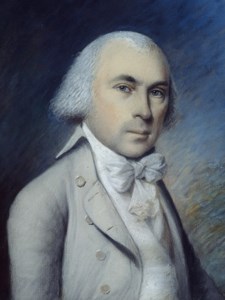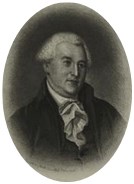
James Sharples Sr., 1796-1797 Veto Powers
"It is impossible that the articles of confederation can be amended - they are too tottering to be invigorated - nothing but the present system, or something like it, can restore the peace and harmony of the country." -James Madison, recorded in Robert Yates' Secret Proceedings and Debates of the Constitutional Convention
The Convention, meeting in the Committee of the Whole, reconsidered the provision giving the national legislature a veto over State laws "contrary to the articles of Union, or Treaties with foreign nations." Charles Pinckney (SC), seconded by James Madison(VA), moved to strike the qualifying clause and thus give the legislature power to veto any state law. Madison, James Wilson (PA) and John Dickinson (DE) spoke in support of the motion. Elbridge Gerry (MA) and Roger Sherman (CT) thought it went too far, though Gerry thought Congress should have an exclusive right to issue paper money. Hugh Williamson (NC), Gunning Bedford (DE) and Pierce Butler (SC) vehemently opposed the motion; Bedford because he viewed it as a further attack on the small states, Butler because he viewed it as against the interests of the more distant states. The motion was defeated 3 ayes (MA, PA, VA), 7 no's, 1 (DE) divided. 
The New York Public Library. www.nypl.org Dickinson of Delaware has proposed the states elect the Senators, yet he still would give the national legislature the power to overrule state laws. Dickinson's fellow Delawarean Gunning Bedford saw this as an attack on the small states.
|
Last updated: February 26, 2015
